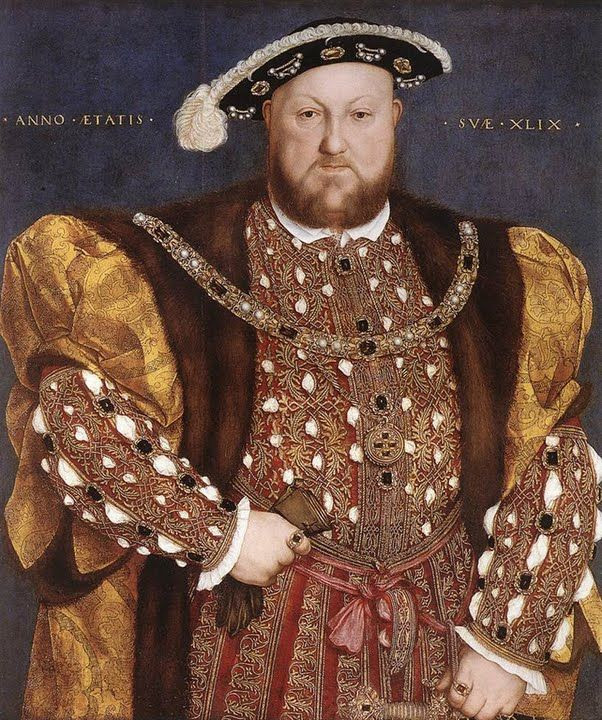Henry VIII May Have Suffered Traumatic Brain Injury, Most Likely Sustained During A Jousting Match

Could Henry VIII, former British monarch and founder of the Church of England, have sustained a traumatic brain injury (TBI) during one of his famous jousting tournaments? That’s what a team of neurobiologists at Yale University have proposed in a new paper set to be released later this year.
According to the Yale report, the foul temper, forgetfulness, and reoccurring migraines documented to have plagued the 16th century monarch are classic symptoms of the same TBI that affects many American football players today. Although the paper is not set to be published in the Journal of Clinical Neuroscience until June 2016, the Yale team gave a sneak preview of what to expect in a recent press release.
For the study, the team carefully read through 16th Century letters and historical sources to get a more accurate timeline of the monarch’s life. The paper-trail painted a picture of a young and even-tempered ruler who transformed into a forgetful and rage-prone man around the decade before his early death. The transformation conveniently coincided with a number of jousting accidents the young king sustained during his frequent tournaments. For example, according to records, Henry suffered from two major blows to the head during his 30s and a serious blow in his 40s that reportedly left the monarch unconscious for two hours.
According to the National Institute of Neurological Disorders and Stroke, TBI results when the head suddenly and violently hits an object or when an object pierces the skull and enters the brain tissue. Long term symptoms of TBI include cognitive problems, such as difficulties with memory and reasoning, difficulty with expression and understanding, and behavioral and personality changes. The team agrees that these symptoms fit with those displayed by the king over 400 years ago, as depicted in the historical records.
To be fair, this is not the first time that researchers have proposed a link between Henry VIII and a possible TBI, as a History Channel documentary also hinted toward the diagnosis in 2009, but the possibility is still exciting.
“It is intriguing to think that modern European history may have changed forever because of a blow to the head,” said neurologist Arash Salardini, lead author of the study, in a press release.
This is not the first time that modern science has helped to diagnose historical figures. For example, a study released last summer suggested that Napoleon Bonaparte may never have been defeated at the Battle of Waterloo in 1815 had it not been for a brain injury that Russian General Mikhail Kutuzov sustained two years prior, and the subsequent brain surgery that saved his life. According to the study, a gunshot to the head would have destroyed the frontal lobe and altered Kutuzov’s personality, changing the once practical man into an impulsive leader. Historians have long questioned Kutuzov's decision to destroy Moscow and retreat to the East rather than stay and fight the French army.
Despite criticism, the decision turned out to be a good one, leading to Napoleaon's ultimate defeat. Had Kutuzov chosen to stay and fight the French, as he was advised, it's likely the war would not have ended the same. According to the study, without the ahead-of-its-time brain operation which saved Kutuzoz’s life, the general would have never been able to use his new brazen personality to decisively defeat Napoleon’s army.
“The brain surgery saved Kutuzov's life, but his brain and eye were badly injured,” lead researcher Dr. Marc C. Preul said in a statement.” However ironically, the healing resolution of this situation allowed him to make the best decision. If he had not been injured, he may well have challenged Napoleon and been defeated."



























